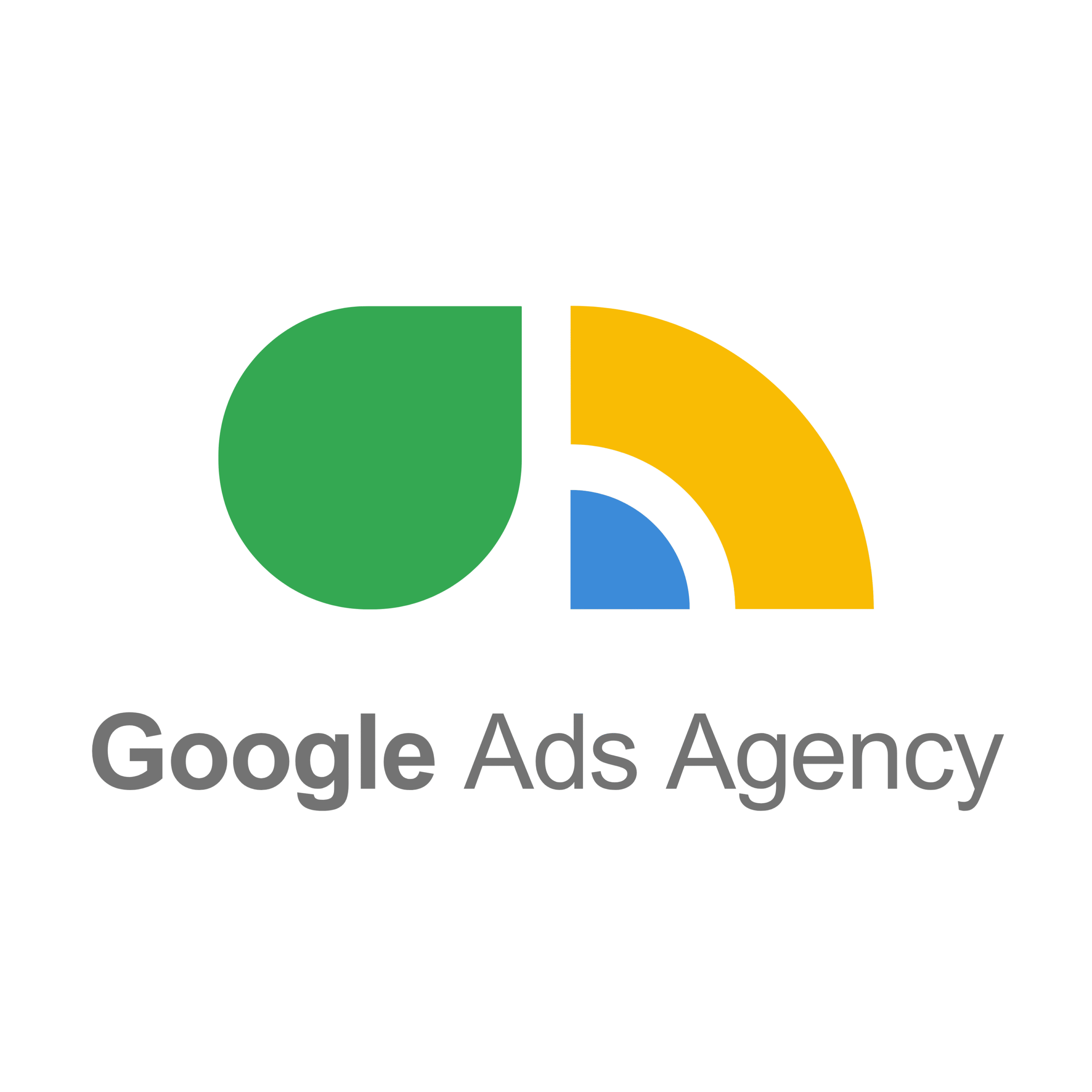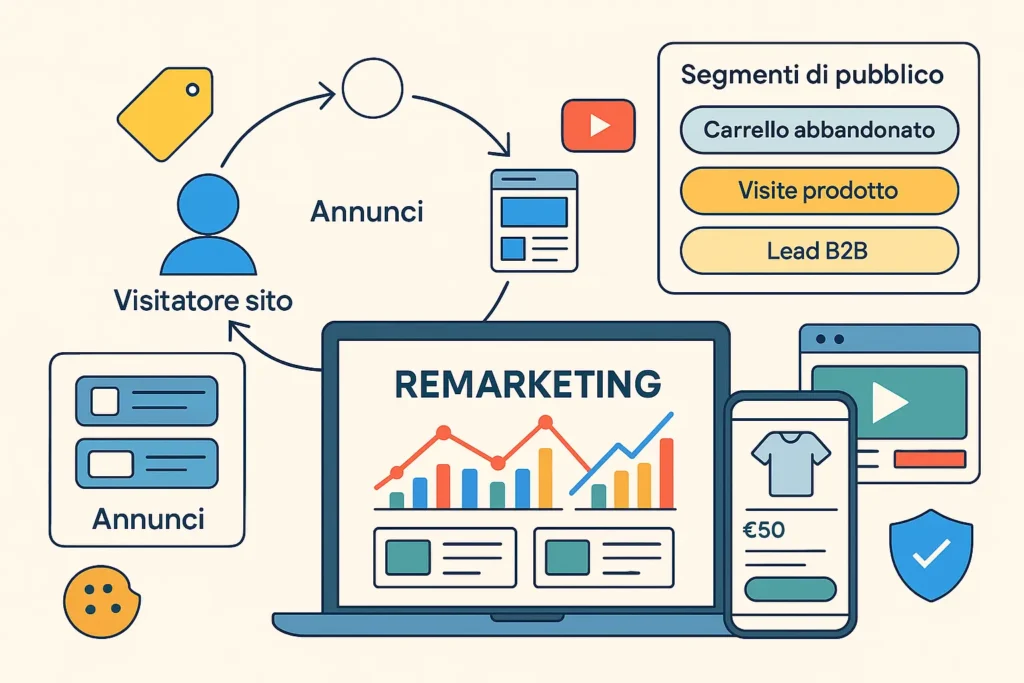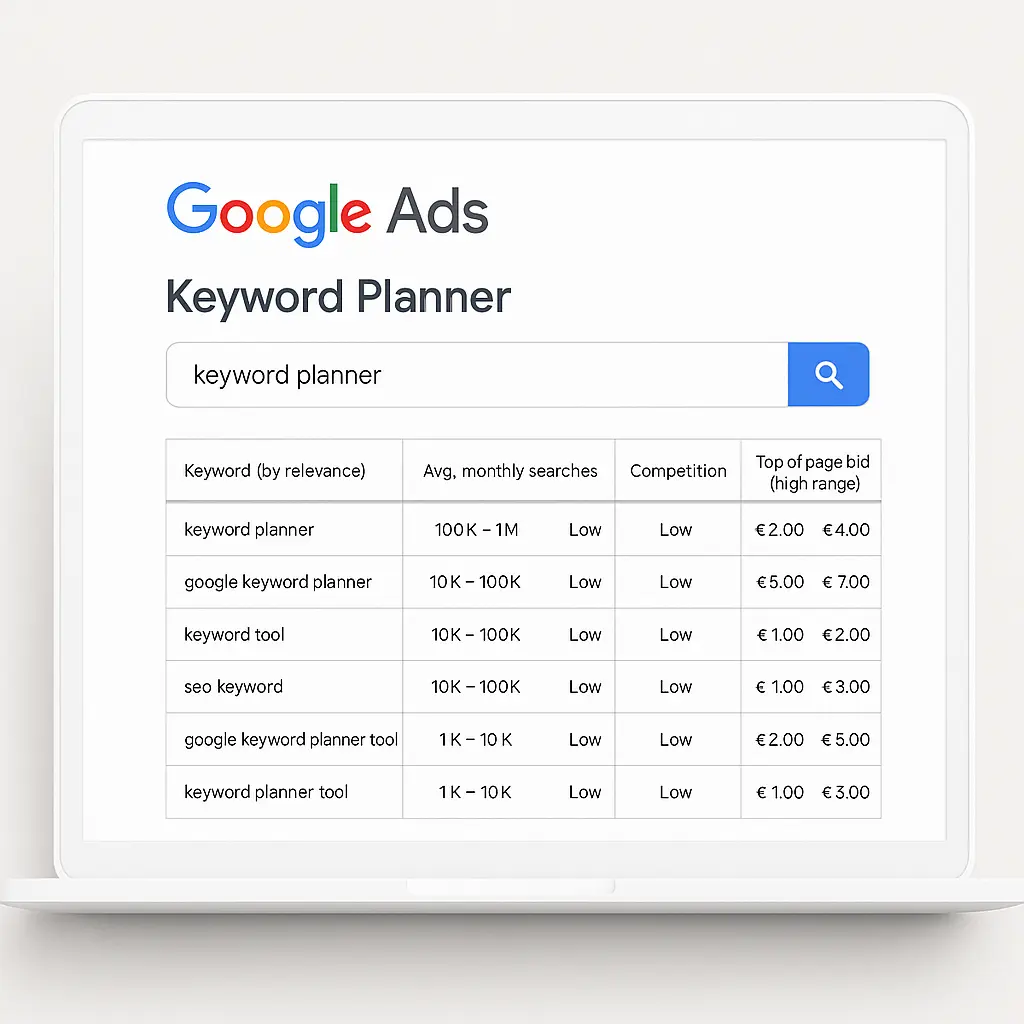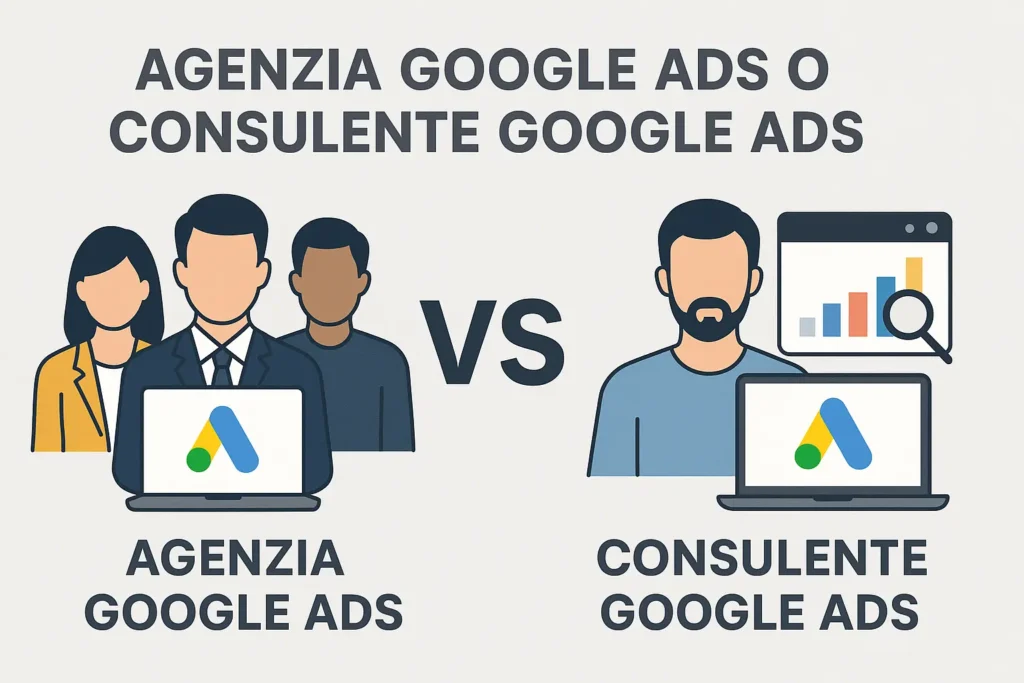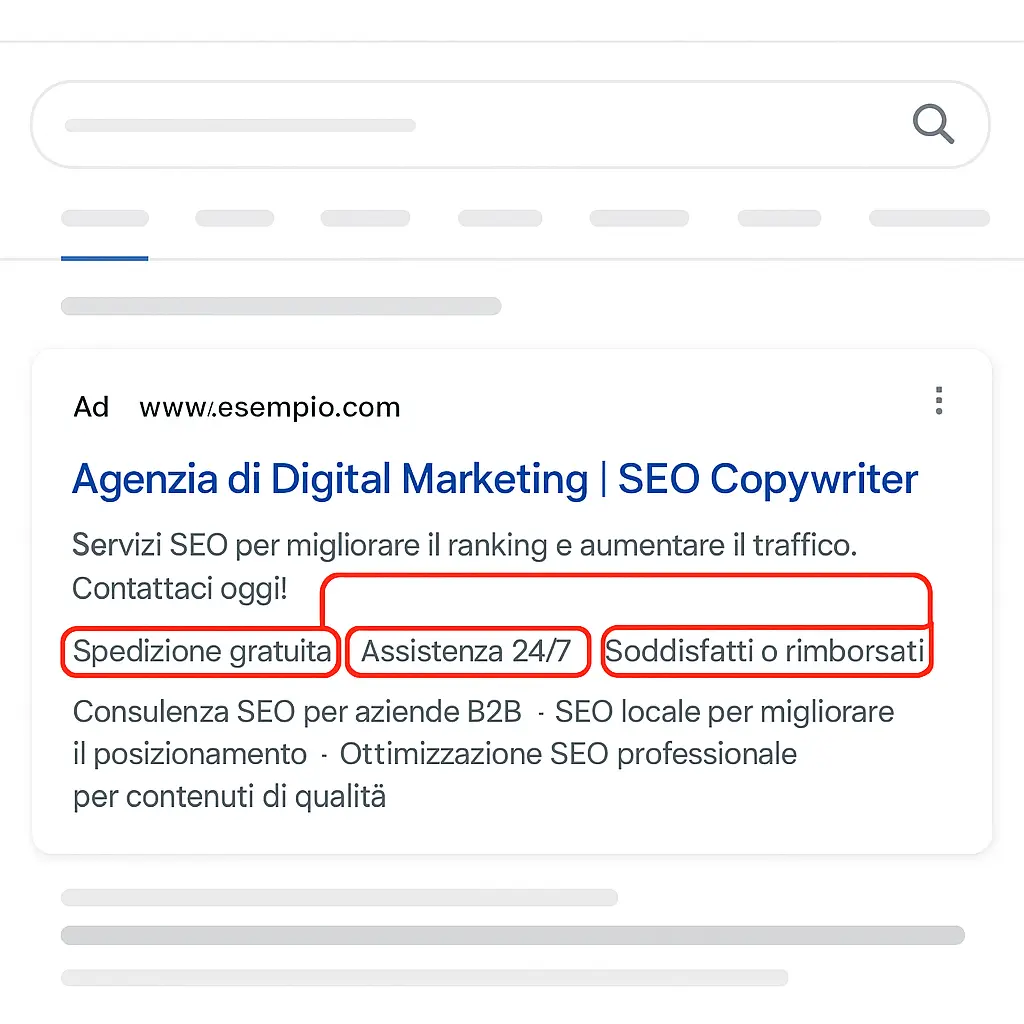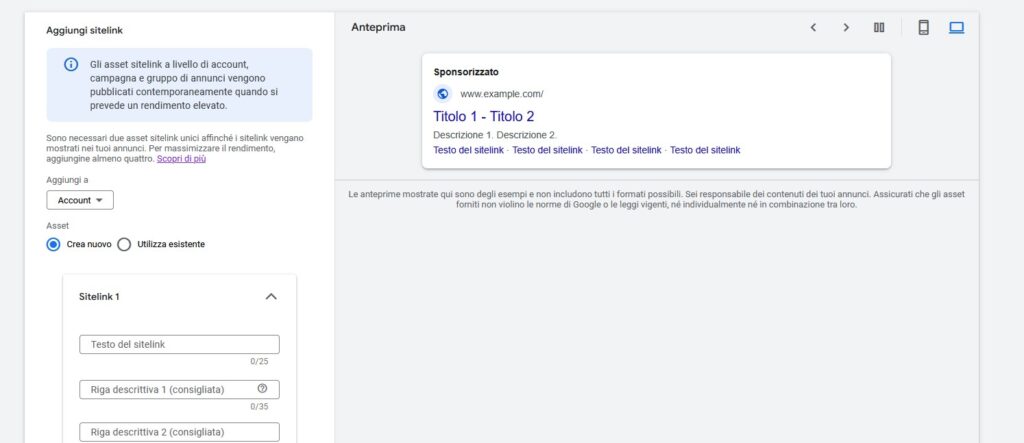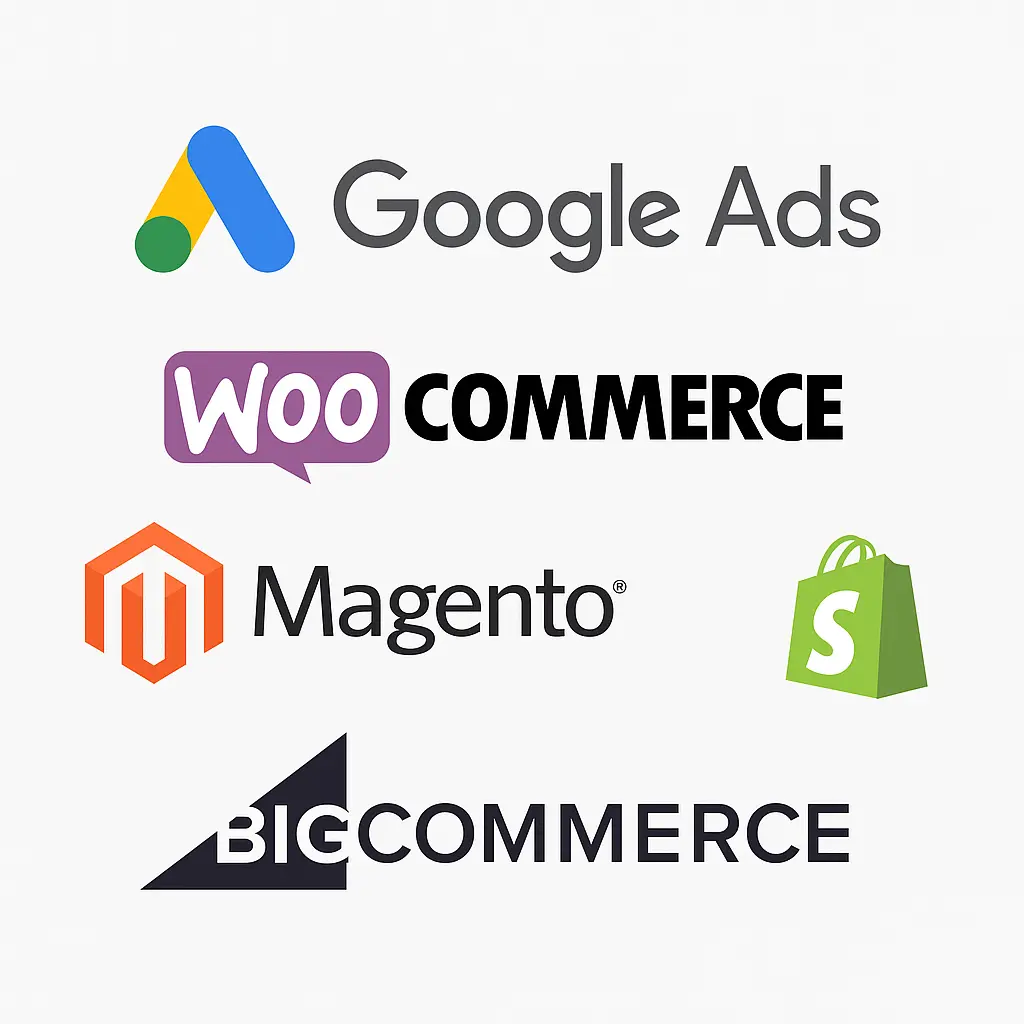Google Ads Agency or Google Ads Consultant: which one should you choose?
Starting an advertising campaign on Google can be challenging, especially if you have no experience in managing Google Ads campaigns. One of the first decisions you need to make is who to entrust your advertising budget to: is it better to hire a specialised Google Ads agency or a freelance Google Ads consultant? This is a common question among entrepreneurs and marketing managers who want to invest in PPC advertising on Google but don’t know which solution is best suited to their needs.
In this article, you will find an in-depth comparison between agencies and consultants, explaining what a Google Ads agency does and what a Google Ads consultant does. We will analyse in detail the pros and cons of both options, highlighting their respective advantages and disadvantages to help you understand the differences and choose the solution that best suits your needs.
Next, we will offer practical guidance on when to choose an agency and when to choose a consultant, taking into account the size of your business (small, medium or large) and even the industry you operate in. The goal is to help you decide who to entrust your paid campaigns on Google to in order to maximise the ROI (return on investment) of your Ads campaigns and get concrete results from your investment.
What is a Google Ads agency?
A Google Ads agency (such as GoogleAdsAgency) is a company or team of professionals specialising in online advertising through the Google Ads platform. In other words, it is a web agency focused on Search Engine Marketing (SEM), offering companies a comprehensive Google Ads campaign management service. By relying on an agency, a company delegates the creation, optimisation and continuous monitoring of its advertising campaigns on Google to a group of experts. This means you can count on diverse skillsets brought together in a single partner: the agency provides specialists with different roles who work together to achieve your advertising goals. In addition, a qualified agency can manage campaigns across all Google advertising networks: from the search network (text ads in Google results) to the display network (banners on websites and apps), to video campaigns on YouTube Ads and e-commerce campaigns on Google Shopping, also using advanced formats such as dynamic ads.
For example, they often have a Google Ads specialist dedicated to the technical setup of campaigns (keyword selection, budget setting, bidding strategies), a copywriter who writes the ad copy, and a web designer or developer for the landing pages where users who click on the ads are directed. Thanks to this multidisciplinary team, the agency is able to manage larger marketing projects and take care of every aspect of advertising, from technical configuration to creative messaging.
In short, turning to a Google Ads agency means having an entire staff of online advertising experts working together to maximise campaign results. The agency takes care of everything: keyword research, text or graphic ad creation, conversion tracking setup, bid management and periodic optimisation, and results reporting. This allows the client company to focus on its core business, knowing that the operational management of Google Ads campaigns is in the hands of dedicated professionals. In addition, the experience gained with numerous clients and sectors allows the agency to optimise the advertising budget and maximise the return on investment (ROI) of campaigns.
What is a Google Ads consultant?
A Google Ads consultant is an individual professional, usually a freelancer, who specialises in managing advertising campaigns on Google. Unlike an agency, which is made up of several people, the consultant works independently, offering companies their expertise as a Google Ads expert. In practice, they are hired by companies of various sizes to plan, implement and optimise their campaigns on the Google Ads platform, without the company having to hire dedicated in-house staff. In addition, Google Ads consultants often work as freelancers or within small consulting firms and may work with multiple clients in different industries. Their role is to provide a tailor-made service: they analyse the client’s specific marketing needs, set up ad hoc advertising strategies and manage campaigns on a day-to-day basis, pursuing agreed objectives (such as leads, online sales or increased web traffic). All this typically takes place remotely or through regular meetings with the client, ensuring direct and flexible contact.
At an operational level, the consultant effectively covers multiple roles. They must be able to perform all the tasks that in an agency would be divided among several specialists: keyword research, campaign configuration with the right parameters (targeting, budget, bids, ad extensions), writing or reviewing ad copy, and setting up conversion tracking. As the sole point of contact, they must master all the types of campaigns that Google Ads offers – from the search network to display ads on the display network, to videos on YouTube Ads and Google Shopping campaigns – and choose the most effective channels based on the client’s type of business. Once the campaigns are up and running, the consultant closely monitors their performance: they analyse metrics (impressions, CTR, CPC, conversions, cost per acquisition, etc.), carry out regular optimisations (adjusting bids, adding new keywords or negatives, testing new ads) and ensure that the ROI of the Ads campaigns is in line with the set objectives.
To demonstrate their expertise, almost all Google Ads consultants obtain individual Google Ads certifications. Google offers several certification exams (e.g. for the search network, display advertising, video advertising on YouTube, Shopping, etc.): by passing these exams, consultants acquire official credentials that attest to their in-depth knowledge of the platform. These certifications must be kept up to date by periodically taking new tests, which ensures that the professional stays on top of changes to Google Ads, demonstrating ongoing professional development. This gives the client the assurance that they are working with a professional with up-to-date skills.
It should be noted that the Google Partner partnership, which many agencies boast, is a recognition reserved for companies and not for individuals. A freelance consultant may certainly have certifications and extensive experience, but technically cannot obtain the Google Partner badge in their own name (unless they are an agency themselves). This does not mean that a certified consultant with years of experience cannot offer a level of expertise comparable to that of a certified agency, simply by operating as an individual professional. Therefore, when evaluating a consultant, it is important to consider their certifications and overall experience: the absence of a Partner badge is not in itself an indication of lesser ability, if the professional has demonstrated in the field that they can successfully manage Ads campaigns.
In summary, hiring a Google Ads consultant means having a dedicated expert for your campaigns, with whom you can establish a direct and ongoing relationship. The consultant personally oversees every aspect of advertising on Google, adapting strategies to the specific needs of the company and offering personalised management of the project. For the company hiring them, this translates into a high level of attention to their campaigns and the opportunity to interact directly with the person actually doing the work. At the same time, the company can focus its resources on its core business, leaving the day-to-day management of Google Ads campaigns to a trusted external professional.
Advantages and disadvantages of a Google Ads agency
Relying on a Google Ads agency has numerous benefits for advertisers. The first advantage is undoubtedly the multidisciplinary team: at an agency, campaigns are managed by several specialists (Ads experts, copywriters, designers, analysts, etc.), whose combined skills allow every aspect of the ads to be optimised. This means having integrated skills at your disposal, which is difficult to achieve with a single person. Another positive aspect is the continuous coverage of the service: an agency can guarantee a constant presence, even during holidays or peak periods, because it has multiple interchangeable resources. The client does not risk any interruptions in campaign management and receives timely support at all times.
In addition, agencies bring extensive multi-sector experience to the table: having managed advertising budgets for clients in different sectors, they can quickly apply proven strategies and specific know-how to your business, reducing the trial-and-error phase. Thanks to this previous experience, campaigns tend to perform better in less time.
Finally, there is the myth of higher costs to dispel. It is widely believed that an agency is more expensive than a freelancer, but this is not always the case. Many agencies, especially small and medium-sized ones, offer prices in line with those of an independent consultant. Even if the agency’s fee is higher, the additional investment often pays for itself through superior results: having an entire team at your disposal can make campaigns more effective, generating a higher ROI that justifies the expense. In addition, the client company saves time and internal resources by avoiding the need to coordinate different professionals separately.
Let’s now look at the possible disadvantages of using a Google Ads agency, which should be considered when making your decision. The first thing to consider is the costs and budget thresholds: a structured agency tends to have higher rates than a single consultant to cover the costs of the team and the organisation. A minimum monthly budget or a fixed-term contract is often required. This can be an obstacle for small businesses with limited budgets. Furthermore, if your advertising investment is modest, you risk being a “minor” client for the agency: you may not receive the same priority and attention as larger clients, or your account may be entrusted to junior staff with less experience.
Another potential disadvantage concerns customisation and the client-supplier relationship. In an agency, each client is one of many: however much agencies try to adapt to each one, it is inevitable that their attention will be divided between several projects. The level of personalisation and in-depth knowledge of your business may be lower than that which a consultant dedicated exclusively to you would guarantee. Communication can also be more filtered: you often interface with an account manager or project manager, who acts as an intermediary between you and the operational team. This can lengthen response times or cause potential misunderstandings, compared to the direct dialogue you would have with a single consultant. Furthermore, larger agencies tend to have a certain amount of staff turnover: you may find that the assistant or specialist handling your account changes, forcing you to reintroduce the specifics of your business to a new person.
Finally, there is less flexibility and more internal bureaucracy. Agencies have standardised procedures and methodologies, which is good for ensuring quality, but can sometimes mean less agility in responding to unusual requests. If you need urgent changes to campaigns or unconventional strategies, an agency may take longer to approve and implement them, as it has to follow its own internal procedures. Even on a contractual level, the agency may bind you to a minimum period of collaboration and impose penalties in the event of early termination. A freelance consultant, on the other hand, often offers greater contractual and operational flexibility. Therefore, if your needs require rapid adjustments and a very flexible approach, the structure of an agency could be a limitation.
At GoogleAdsAgency, these disadvantages are eliminated because our services combine the best of the agency world with the best of the freelance world.
Advantages and disadvantages of a Google Ads consultant
After examining the characteristics of the agency, it is also important to weigh the pros and cons of relying on a Google Ads consultant. In many cases, the advantages of a consultant correspond to the limitations of an agency and vice versa, but it is useful to outline them clearly in order to make a balanced decision. A freelance Google Ads consultant offers a different approach: more personal, more flexible, often cheaper, but with some possible drawbacks due to the individual nature of the service. In the following paragraphs, we will highlight the main advantages that a consultant can offer and any disadvantages to be weighed up. As always, the importance of these factors will depend greatly on the specific needs and situation of your company. Ultimately, the choice between a consultant and an agency should take into account not only the costs, but also the need for a single point of contact, the degree of specialisation required and the scale of the advertising campaigns to be managed.
Advantages of a Google Ads consultant
Let’s first look at the advantages of choosing a Google Ads consultant. The first pro to mention is affordability and accessibility for smaller budgets. A freelance consultant has fewer fixed costs than an agency, so they can afford to offer generally lower rates or more flexible terms. It is not uncommon for a consultant’s fee to be around half that of an agency for the same work. In addition, consultants are more likely to accept projects with smaller advertising budgets, while still dedicating the same level of commitment and attention: every client, even small ones, is important to an independent professional, because they constitute a significant part of their income and portfolio.
The second key advantage is the high level of personalisation and direct relationship. By relying on a consultant, you will have a single point of contact who knows your business inside out and tailors the strategy exactly to your needs. The consultant can spend more time understanding the specifics of your market, your products and your audience, offering a tailor-made service. There are no filters: you communicate directly with the person who actually manages the campaigns, receiving quick responses and immediate solutions to your requests. This professional proximity often leads to greater alignment with the client’s objectives: the success of your campaigns is the success of the consultant, who bases their reputation on the results they achieve for you.
Third advantage: operational flexibility and speed of response. A Google Ads consultant can move very quickly. If there is an urgent change to be implemented in a campaign or a new tactic to be tried, they do not have to go through internal hierarchical levels: they intervene directly and immediately. It is easier for a consultant to accommodate special or non-standard requests, precisely because they do not have to comply with rigid company policies. From a contractual point of view, there is also greater freedom: working with a freelancer often does not require long-term commitments, as you can renew on a monthly or project basis, with no penalties in the event of termination. This flexibility is a great advantage if you need a partner who can adapt quickly to changes in your business or the market.
Disadvantages of a Google Ads consultant
Of course, there are also possible disadvantages to relying on a Google Ads consultant, mainly related to the limitations of individual management. The first concerns operational continuity and dependence on a single person. A freelance consultant, however available and reliable, remains a single individual: this means that they may not be available 365 days a year. If they fall ill, go on holiday or have an unexpected event, your campaigns may not receive the same attention during that period (unless the consultant organises a backup, which is not always possible for an independent consultant). Unlike an agency, there is no alternative team ready to step in if they are absent. This dependence on a single person carries an operational risk that needs to be considered, especially for critical campaigns that require constant monitoring.
A second disadvantage is the limited ability to manage very large or multidisciplinary projects. A consultant, however experienced, has a natural limit on time and energy and works alone. If your company has a very large advertising budget, many different campaigns or needs that span multiple channels at the same time, a single consultant may struggle to keep up with everything. In the case of very complex Google Ads accounts (perhaps with thousands of keywords, campaigns in multiple languages, large display campaigns, etc.), a freelancer may not have the resources to optimise every detail as effectively as a dedicated team. Furthermore, if extra skills are needed (e.g. graphic design to create banners, web development to optimise landing pages, advanced data analysis), the consultant will have to collaborate with third parties or ask the client for support, as they cannot cover every specialisation on their own. This can place an additional burden on the company, which has to coordinate multiple players, whereas an agency would have handled everything internally.
Thirdly, there is a question of perception and professional structure. Some companies may feel more comfortable entrusting their budget to a structured company rather than to a single consultant. An agency offers formal guarantees (well-defined contracts, insurance, perhaps physical offices) and a corporate brand that conveys solidity. A consultant, however qualified, may initially be perceived as “less secure” by those accustomed to traditional B2B relationships. Of course, a lot depends on the individual: there are extremely professional and organised consultants out there. However, it is worth mentioning that choosing the right consultant requires care: the market is populated by professionals of varying levels, and without the guarantee of a brand behind them, it is important to check the consultant’s references, certifications and case studies to ensure they have the right skills. In summary, the consultant formula can deliver great results if you find the right professional, but it requires a little more diligence in the selection phase.
Agency or consultant: which one should you choose for your business?
There is no one-size-fits-all answer to the question of whether a Google Ads agency or a consultant is better: the choice depends on the characteristics of your business, your budget, your goals and even your internal organisational culture. In this section, we will try to provide some general guidelines on when it is better to opt for an agency and when a consultant may be better, considering above all the size of your company – whether you are a small, medium or large enterprise – and the sector in which you operate. Of course, every case is unique, but some typical situations can help you find your way around: For example, small businesses tend to have limited resources and may find a consultant the most suitable person to start with; medium-sized businesses evaluate the choice based on their growth objectives and the internal skills already available; finally, large companies often prefer structured agencies capable of managing substantial budgets and complex projects. Let’s look at each case in detail.
Small businesses
If you are a small business or a start-up with limited budget, in many cases, hiring a Google Ads consultant may be the most efficient choice. The management costs of a consultant are generally lower than those of an agency, allowing you to invest a larger portion of your budget directly in clicks and conversions rather than agency fees. In addition, a consultant will offer a highly personalised approach: for a small business, it is important to have a partner who thoroughly understands your local business and can guide you step by step through online advertising. Small businesses often do not have a structured in-house marketing team, so having a dedicated professional (even if external) who takes care of everything can make all the difference. The consultant can help you optimise every pound of your advertising budget by setting up campaigns tailored to your needs without pushing you into excessive investments. It should be noted that if your small business has needs that go beyond Google Ads (e.g. creating a website, SEO, social media marketing), you may also want to consider micro-agencies or different professionals for each area. But for pure paid campaigns on Google, a good certified consultant is often the ideal solution to get you off on the right foot, given their flexibility and attention to even modest budgets.
Medium-sized businesses
In the case of a medium-sized business (an already established company with a decent marketing budget), the choice between an agency and a consultant becomes less obvious and depends on how your business is organised internally and your growth objectives. If your company has an internal marketing team (even a small one) that can collaborate with external partners, a Google Ads consultant could be a good fit: they will act as an external specialist focused solely on PPC campaigns, working closely with your staff. In this scenario, the consultant provides vertical expertise on Google Ads, while your team takes care of the rest of the marketing, ensuring good coordination and keeping costs under control. On the other hand, if your company lacks dedicated digital marketing professionals, you may benefit from hiring an agency. An agency can provide you with a broader range of services (not just Ads management, but possibly strategic support, landing pages, advanced analytics) that a single consultant would not be able to offer. The available advertising budget also plays a role: with medium to high investments, you could afford a quality agency, but if your Google Ads budget is in the range of a few thousand pounds per month, a consultant could manage it with more individual attention. Essentially, for a medium-sized business, both solutions are valid: if you are looking for a personal relationship and have specific needs only on Google Ads, choose a consultant; if, on the other hand, you want a more structured partner and perhaps take advantage of cross-functional skills, choose an agency that is perhaps commensurate in size to yours (e.g., a small agency for a medium-sized business, so that you are sufficiently important as a client).
Large businesses
For large companies or corporations with a large advertising budget, in most cases, turning to an established Google Ads agency is the most natural solution. If your company manages large-scale campaigns (perhaps with hundreds of thousands of pounds in annual spending, operations in multiple countries, or the need to cover many channels such as search network, display, YouTube, etc.), you will need structured support and a team of several people. An agency of the right size can assign you a dedicated account manager and various specialists (Ads, analytics, creativity) who work in parallel on your account, ensuring high management capacity and continuity of service even in the event of individual absences. In addition, large organisations often require formal service levels (SLAs, detailed reporting, regular meetings) that an experienced agency is accustomed to providing. This does not mean that a consultant cannot be involved: some large companies, for example, employ external consultants for specific projects or periodic campaign audits (thus obtaining a second independent opinion on the work of the main agency). However, for the ongoing day-to-day management of a large investment in Google Ads, a Premier Partner agency with proven experience with large clients generally offers greater guarantees. In summary, for a large organisation, an agency is almost always the first choice, while a consultant can play a complementary role (advisory or on individual tasks) rather than a replacement role.
Industry and type of business
A final factor to consider is the industry in which your company operates and the specific type of business. In some cases, the choice between an agency and a consultant may depend on the previous experience these partners have in your field. For example, if you work in a niche or highly specialised sector (such as the medical-pharmaceutical, legal or industrial B2B sectors), you may want to give priority to those who have already managed similar Google Ads campaigns. There may be an agency that specialises in your industry, with case studies and vertical know-how: in this case, it may be worth relying on them, even if the cost is higher, because they already know the dynamics of that market (specific keywords, advertising regulations, target behaviour, etc.). On the other hand, if you find an experienced consultant with a successful track record in your industry, they may offer you a comparable or even higher level of expertise, with the advantage of a more direct relationship. In essence, always evaluate references and specific expertise in your field: all other things being equal (cost, professionalism, etc.), choosing someone who “speaks the language” of your industry will accelerate results.
The type of business also matters: a medium-sized e-commerce business might be better off with a consultant specialising in e-commerce (who can handle Google Shopping and detailed product feeds) than with an agency with a dedicated e-commerce team. A local business with a single store, on the other hand, may not need the advanced services of a structured agency, while a multinational company with established brands may require the support of a Premier-level certified partner. Finally, consider your working approach: if you prefer a formal relationship, defined procedures and a recognised brand, you will probably be better off with an agency; if, on the other hand, you value flexibility, speed and a more personal human touch, working with a consultant may suit you better. The important thing is that you choose a professional/agency with proven experience in your field, so that you can entrust your advertising budget to experienced and competent hands.
